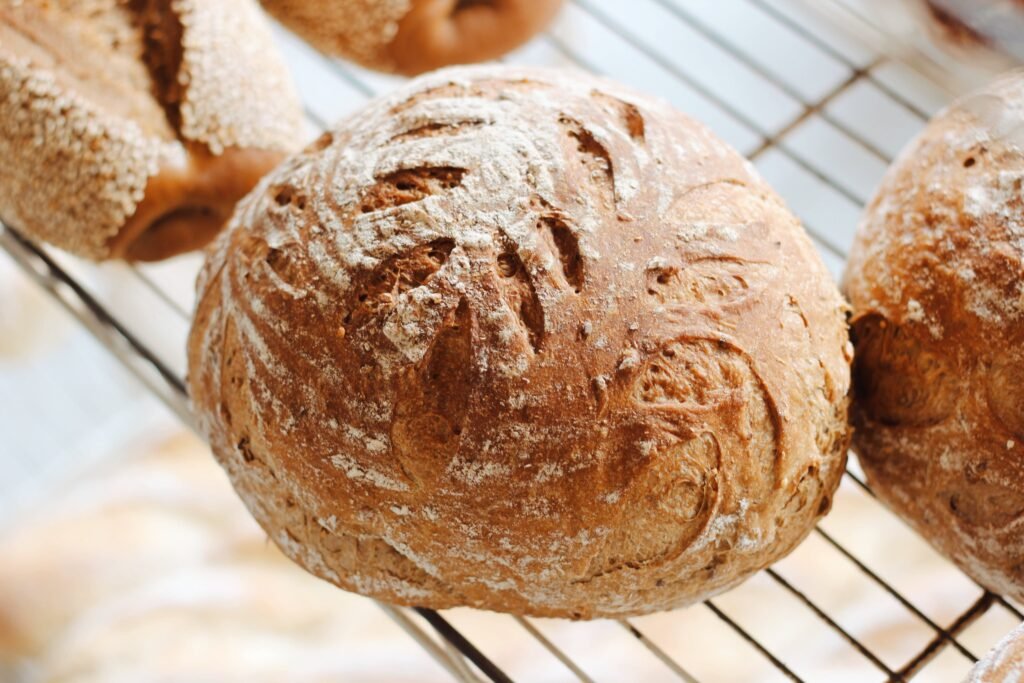Achieve Weight Loss with Nutrition Plans
If you’re on a weight loss journey, you’ve probably explored numerous options for shedding those extra pounds. But have you considered the power of nutrition plans? In this article, we’ll explore how incorporating a well-rounded nutrition plan can help you achieve your weight loss goals. By focusing on the importance of nutrient-dense foods and tailored meal plans, you’ll discover the secret to sustainable and long-lasting weight loss. So, say goodbye to restrictive diets and welcome the joy of nourishing your body through a personalized nutrition plan. Prepare to embark on a transformative journey towards a healthier, happier you!

This image is property of images.pexels.com.
1. Understanding Nutrition
Importance of nutrition in weight loss
Proper nutrition plays a crucial role in achieving your weight loss goals. It is important to understand that weight loss is not just about cutting calories or following fad diets; it’s about nourishing your body with the right nutrients it needs to function optimally. By fueling your body with nutritious foods, you can support your metabolism, maintain muscle mass, and ultimately lose weight in a healthy and sustainable way.
Macronutrients and micronutrients
When it comes to nutrition, it’s essential to understand the difference between macronutrients and micronutrients. Macronutrients include carbohydrates, proteins, and fats, which are the main sources of energy for your body. Micronutrients, on the other hand, refer to vitamins and minerals that are crucial for various bodily functions, such as immune system support and bone health. A well-balanced nutrition plan should include a variety of macronutrients and micronutrients to ensure you are getting all the necessary nutrients your body needs to thrive.
Caloric deficit and weight loss
To lose weight, it is important to create a caloric deficit, which means consuming fewer calories than your body burns. This can be achieved through a combination of dietary changes and increased physical activity. However, it’s important to note that extreme calorie restriction can be harmful to your health and can lead to nutrient deficiencies and metabolic slowdown. A gradual and sustainable approach to weight loss, with a focus on nutrient-dense foods, is key for long-term success.
2. Designing a Balanced Nutrition Plan
Setting realistic weight loss goals
When designing a nutrition plan for weight loss, it’s crucial to set realistic and achievable goals. Many people make the mistake of aiming for rapid weight loss, which often leads to frustration and disappointment. Instead, focus on setting small, attainable goals that can be achieved over time. This will not only boost your motivation but also ensure a healthier approach to weight loss.
Determining daily caloric intake
To design an effective nutrition plan, it’s important to determine your daily caloric intake. This can be done by calculating your basal metabolic rate (BMR) and taking into consideration your activity level. Numerous online calculators are available to help you estimate your daily caloric needs. Once you have this information, you can plan your meals and snacks accordingly to create a calorie deficit that aligns with your weight loss goals.
Creating a nutrition plan based on individual needs
Every person is unique, and their nutrition plan should reflect that. Consider your dietary preferences, food intolerances, and any underlying medical conditions when creating your nutrition plan. It’s important to focus on incorporating a variety of nutrient-dense foods, such as lean proteins, whole grains, fruits, and vegetables. Consulting with a registered dietitian or nutritionist can be helpful in tailoring a plan that meets your individual needs and supports your weight loss journey.

This image is property of images.pexels.com.
3. Choosing the Right Foods
Filling up on fruits and vegetables
Fruits and vegetables are an essential part of a balanced nutrition plan for weight loss. They are low in calories and packed with vitamins, minerals, and fiber, which help keep you feeling full and satisfied. Aim to include a variety of colorful fruits and vegetables in your meals and snacks to ensure you are getting a wide range of nutrients. Whether it’s adding berries to your breakfast or enjoying a side salad with lunch, these nutrient-rich foods should be a staple in your weight loss journey.
Incorporating lean proteins
Protein is an important macronutrient that plays a key role in weight loss. It helps build and repair tissues, supports muscle growth, and contributes to a feeling of fullness. When designing your nutrition plan, incorporate lean sources of protein such as poultry, fish, tofu, beans, and legumes. These options are not only low in fat but also provide essential amino acids that are necessary for various biological functions.
Including healthy fats
Contrary to popular belief, not all fats are bad for you. In fact, healthy fats are crucial for your overall health and can aid in weight loss. Foods like avocados, nuts, seeds, and olive oil are excellent sources of healthy fats that provide essential fatty acids and help regulate cholesterol levels. Including these fats in moderation can promote satiety and support a healthy, balanced nutrition plan for weight loss.
4. Avoiding Empty Calories
Limiting processed and sugary foods
One of the keys to successful weight loss is limiting your consumption of processed and sugary foods. These types of foods tend to be high in calories, low in nutrients, and can lead to weight gain and various health issues. Instead, focus on whole, unprocessed foods like whole grains, lean proteins, and fresh fruits and vegetables. Opt for homemade meals and snacks rather than relying on pre-packaged and processed foods.
Cutting back on alcohol consumption
Alcoholic beverages can be a hidden source of empty calories that hinder your weight loss efforts. They provide no nutritional value and can lead to increased hunger and poor food choices. While moderate alcohol consumption is acceptable for some, it’s important to be mindful of the calories and potential negative effects it can have on your weight loss journey. Consider swapping alcoholic beverages for healthier options like infused water or herbal tea.
Avoiding excessive snacking
Mindless snacking can easily derail your weight loss progress. It’s important to be mindful of your snacking habits and choose nutritious options that support your goals. Opt for snacks that are high in protein and fiber, such as Greek yogurt with berries or a handful of nuts. Planning your snacks ahead of time and portioning them out can prevent overeating and help you stay on track with your nutrition plan.

This image is property of images.pexels.com.
5. Understanding Portion Control
Importance of portion control
Portion control is a crucial aspect of weight loss that is often overlooked. Even when consuming nutritious foods, if you eat too much, you may still exceed your caloric intake and hinder your weight loss progress. Understanding proper portion sizes allows you to enjoy a variety of foods while still creating a calorie deficit. By practicing portion control, you can avoid overeating and promote a healthier overall diet.
Using measuring tools
Measuring tools, such as measuring cups and food scales, can be incredibly helpful when it comes to portion control. They allow you to accurately measure your food and ensure you are consuming appropriate serving sizes. Initially, it may take some time and effort to measure everything, but over time, you will become more familiar with portion sizes and be able to eyeball them more accurately.
Mindful eating techniques
In addition to using measuring tools, practicing mindful eating techniques can also help with portion control. Paying attention to your body’s hunger and fullness cues and eating slowly can prevent overeating. Take the time to savor and enjoy your meals, and listen to your body’s natural signals of satiety. By being more present while eating, you can develop a healthier relationship with food and maintain a balanced nutrition plan for weight loss.
6. Meal Planning and Prepping
Benefits of meal planning
Meal planning is a valuable tool for successful weight loss. By planning your meals in advance, you can ensure you have nutritious options readily available and avoid making impulsive, unhealthy food choices. Meal planning also helps save time and money by reducing food waste and eliminating the need for last-minute takeout or unhealthy convenience foods.
Planning meals in advance
When designing your nutrition plan, take the time to plan your meals for the week. Consider your schedule, dietary preferences, and nutritional needs. Make a list of ingredients you will need and go grocery shopping accordingly. This way, you will have everything you need to prepare healthy meals and snacks throughout the week, making it easier to stick to your weight loss goals.
Batch cooking and portioning
Once you have your meals planned, consider batch cooking and portioning your meals in advance. This will save you time during busy weekdays and ensure you have healthy options readily available. Cook larger batches of recipes and store them in portioned containers in the refrigerator or freezer. This way, you can simply grab a pre-portioned meal whenever you need one, making it easier to stay on track with your nutrition plan.
7. Incorporating Regular Exercise
Combining nutrition with exercise
While nutrition plays a significant role in weight loss, incorporating regular exercise is essential for achieving optimal results. Exercise helps increase calorie expenditure, build lean muscle mass, and improve overall fitness. Combining a balanced nutrition plan with regular physical activity can enhance weight loss and improve overall health and well-being.
Choosing exercises for weight loss
When selecting exercises for weight loss, it’s important to choose activities that you enjoy and can sustain long-term. A combination of cardiovascular exercises, such as running, swimming, or cycling, and strength training exercises, like weightlifting or bodyweight exercises, can be effective for burning calories and building muscle. Find activities that fit your lifestyle and schedule, and aim for a mix of both cardiovascular and strength training exercises to maximize your weight loss efforts.
Creating a consistent workout routine
Consistency is key when it comes to exercise. Create a workout routine that fits your schedule and commit to it. Whether it’s scheduling early morning workouts or finding a workout buddy to hold you accountable, make exercise a regular part of your routine. Aim for at least 150 minutes of moderate-intensity aerobic activity or 75 minutes of vigorous-intensity aerobic activity per week, along with strength training exercises at least twice a week.
8. Monitoring Progress and Making Adjustments
Tracking food intake and weight
Monitoring your food intake and weight is important for understanding your progress and making necessary adjustments. Keep a food diary or use a mobile app to track what you eat and drink throughout the day. This can help you identify any patterns or areas where you might need to make changes. Additionally, regularly weigh yourself or take measurements to track your weight loss progress over time.
Adapting the nutrition plan as needed
As you progress on your weight loss journey, it’s important to adapt your nutrition plan to suit your changing needs. Gradually adjust your caloric intake based on your weight loss goals and how your body is responding. If you hit a plateau, consider modifying your eating habits or seeking guidance from a registered dietitian or nutritionist. Remember, weight loss is a journey, and it may require some trial and error to find what works best for you.
Seeking professional guidance if necessary
If you find yourself struggling to achieve your weight loss goals or have underlying health issues, seeking professional guidance can be beneficial. A registered dietitian or nutritionist can provide personalized advice and support to help you navigate any challenges and ensure you are on the right track. They can also help you address any specific nutritional needs or concerns you may have.
9. Dealing with Challenges and Temptations
Overcoming emotional eating
Many people turn to food for comfort during times of stress or emotional distress, which can hinder weight loss progress. To overcome emotional eating, it’s important to identify your triggers and find alternative coping mechanisms. Engage in activities that help reduce stress, such as exercise, meditation, or spending time with loved ones. Additionally, finding healthier ways to deal with emotions, such as journaling or seeking professional help, can also support your weight loss journey.
Handling social situations and dining out
Social situations and dining out can pose challenges when trying to stick to a nutrition plan. However, with a little planning and intention, it’s possible to navigate these situations successfully. When dining out, review the menu beforehand and choose healthier options or ask for modifications. Control your portions by sharing a dish or requesting a to-go box for leftovers. By being mindful and making conscious choices, you can enjoy social events while still staying on track with your weight loss goals.
Finding healthier alternatives for cravings
Cravings can be a common obstacle when following a nutrition plan for weight loss. Instead of giving in to unhealthy options, find healthier alternatives to satisfy your cravings. For example, if you have a sweet tooth, opt for a piece of fruit or a small serving of dark chocolate. If you’re craving something crunchy, reach for crunchy vegetables like carrots or cucumbers instead of chips. Experiment with healthy recipes and snack options to find alternatives that satisfy your cravings without derailing your progress.
10. Maintaining a Healthy Lifestyle
Transitioning to a long-term nutrition plan
Successful weight loss is not just about achieving a number on the scale; it’s about adopting a healthy lifestyle that you can maintain long-term. As you approach your goal weight, start transitioning from a focused weight loss plan to a balanced nutrition plan that supports overall health and well-being. This may involve slightly increasing your caloric intake or adjusting your macronutrient ratios to maintain your weight while still providing essential nutrients.
Practicing moderation and balance
Maintaining a healthy lifestyle is all about practicing moderation and balance. Allow yourself to indulge in your favorite treats occasionally, but in moderation. Instead of completely restricting certain foods, focus on portion control and mindful eating. Incorporate a wide variety of nutritious foods into your meals and aim for a balanced diet that includes all the essential macronutrients and micronutrients. By finding a healthy balance, you can sustain a nutritious eating plan while still enjoying the foods you love.
Continuing healthy habits beyond weight loss
Once you have achieved your weight loss goals, it’s important to continue practicing the healthy habits you’ve established. Continue to prioritize nutritious foods, regular exercise, and mindful eating. Weight maintenance requires ongoing effort and commitment. Celebrate your achievements and use them as motivation to maintain a healthy lifestyle. Remember, your weight loss journey is just the beginning of a lifetime of well-being and self-care.



